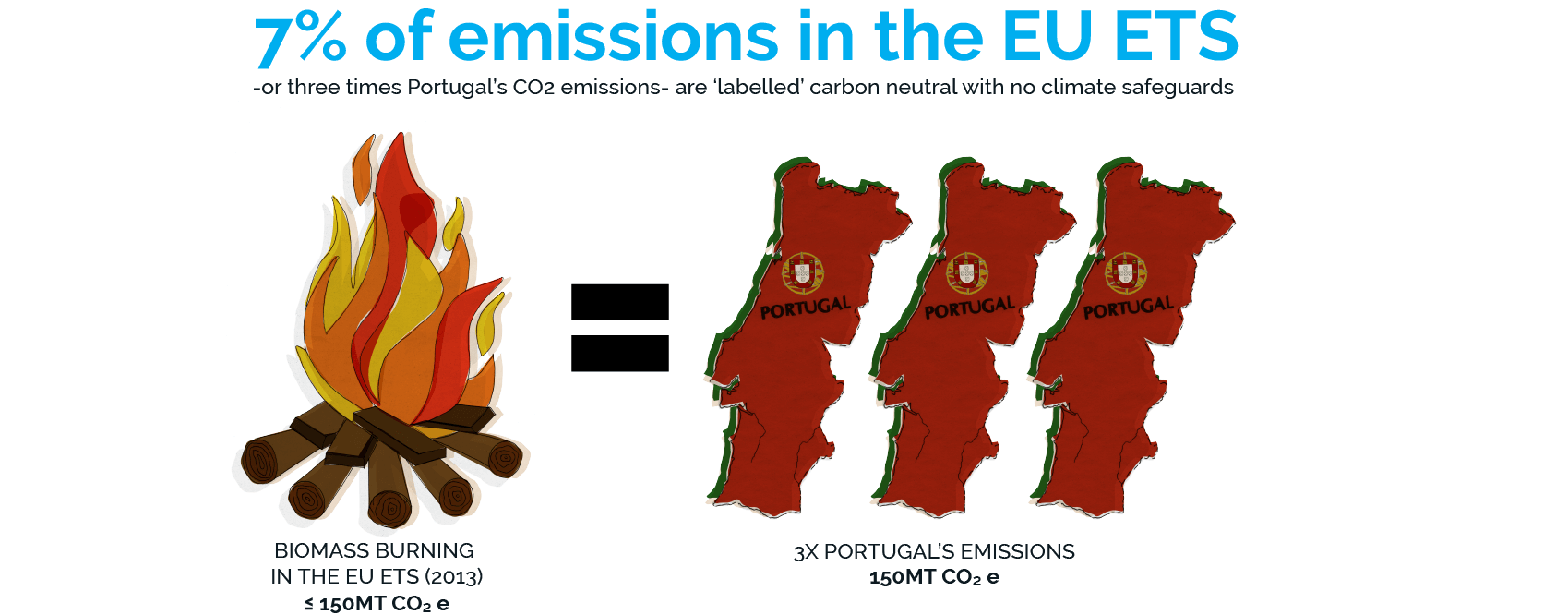Fuelling a debate based on facts
When MEPs and governments failed to finalise reform of Europe’s deeply flawed biofuels policy two years ago, T&E settled in for a much longer campaign than envisaged. In 2009 the EU had passed a law to promote the use of biofuels in Europe’s cars – fuels that lawmakers mistakenly believed were cleaner than fossil fuels. It was imperative that any reforming law would account for biofuels’ indirect emissions, which occur when land previously used to grow crops for food is converted to grow crops for fuel – resulting in carbon sinks elsewhere being cleared to produce food.
By 2015 the European Parliament was under siege from lobbyists of every stripe – farmers, oil companies, carmakers – to weaken a proposed cap on land-based biofuels, and we needed a way to communicate the facts to politicians. T&E and other environmental and development NGOs simply had to frame the debate so that the science could speak for itself, drowning out arguments about farm supports and bogus green credentials.
‘I don’t like preaching’
T&E crafted a strategy to be deployed online and on the ground, starting with The Little Book of Biofuels. This neat coffee-table book set the boundaries of the debate, introducing the hard facts in a comprehendible form: the additional biofuels demand created by existing EU targets would result in extra emissions equivalent to adding up to 29 millions extra cars to Europe’s roads. Every fact was backed with timelines and tables showing where every political actor stood, and graphs detailing biofuels’ impact. Demand for the book was so high among time-starved parliament staffers seeking the facts that the first print run quickly ran out.
The release of the new rapporteur’s draft report was crunch time for the campaign and our web documentary at Biofuelsreform.org was deployed with impeccable timing. Beyond the interactivity and smooth user interface, the documentary had at its heart a journalistic exposition of every angle of the topic and every single voice. It also contained a trove of press articles highlighting concerns of scientists and the Commission about the actual benefits of first-generation biofuels. But crucially, interviews with the most important MEPs showed they were responding to T&E’s approach. “I don’t like preaching, I need facts,” said the rapporteur, Nils Torvalds.
 “Estos biocombustibles no tienen futuro en la UE. Si queremos conseguir la reducción del 60% en la emisión de gases de efecto invernadero en 2050, la UE tiene que fomentar la eficiencia y facilitar la instalación de tecnologías bajas en carbono, como la electricidad renovable”
“Estos biocombustibles no tienen futuro en la UE. Si queremos conseguir la reducción del 60% en la emisión de gases de efecto invernadero en 2050, la UE tiene que fomentar la eficiencia y facilitar la instalación de tecnologías bajas en carbono, como la electricidad renovable”
– Pietro Caloprisco, senior clean energy officer
El País, 14 April 2015
The documentary website garnered 4,000 unique visitors, mainly based in Brussels. Then, five days before the vote, a wider pressure campaign swung into action – targeting key MEPs. T&E and the NGOs created a web platform from where 3,000 citizens directly tweeted at 10 wavering MEPs, asking them to stop bad biofuels. In the end, MEPs limited at 7% the use of first-generation biofuels that can count toward the 10% renewable energy target in transport by 2020. A multi-billion industry is now re-considering its investments in these fuels that some hoped would green Europe but instead turned out to be a costly climate disaster.

As the dust settled on a five-year campaign, T&E’s attentions focused beyond Europe to Colombia, a new hub of palm oil production to supply the old continent. We sent a documentary team to the vast palm oil plantations of the country where 4.7 million people have been displaced from their home and lands due to a complex armed conflict. The resulting film will join the dots between Europe’s fuels policy and its seemingly intangible effects.
ABack in Europe we continue to challenge the received wisdom about bioenergy sustainability. Our study with other NGOs found that up to 150 million tonnes of CO2 result from burning biomass with no climate safeguards and that these are being labelled carbon neutral in Europe. That means that up to 7% of all emissions in the emissions trading system do not require carbon permits – based on the questionable assumption that all the CO2 released by burning will be compensated through extra carbon absorption the future. Our work exposed the gaping hole in EU renewable energy legislation, which lacks sustainability criteria for this ‘green’ fuel.
Europe also lacks a plan for bioenergy from wastes and residues – despite growing interest in this overlooked source. T&E worked with a coalition of businesses and NGOs to produce the first comprehensive study on the potential of this untapped advanced biofuel for transport.
Learn more
http://www.transportenvironment.org/what-we-do/biofuels






